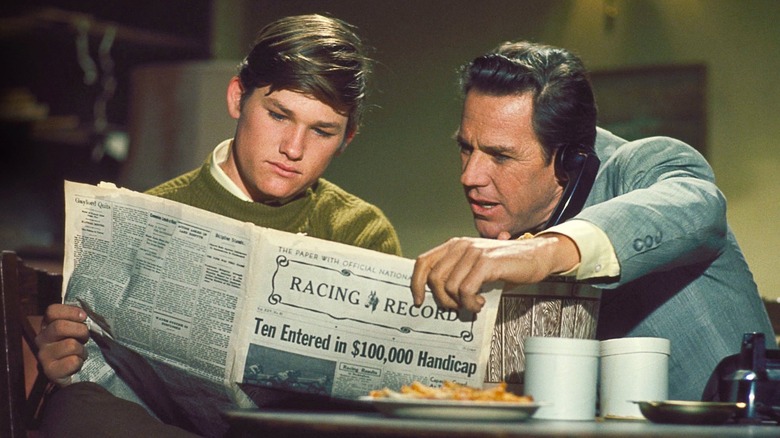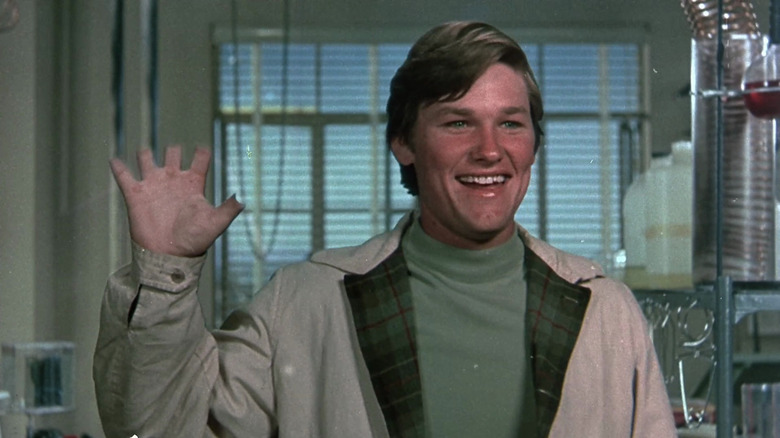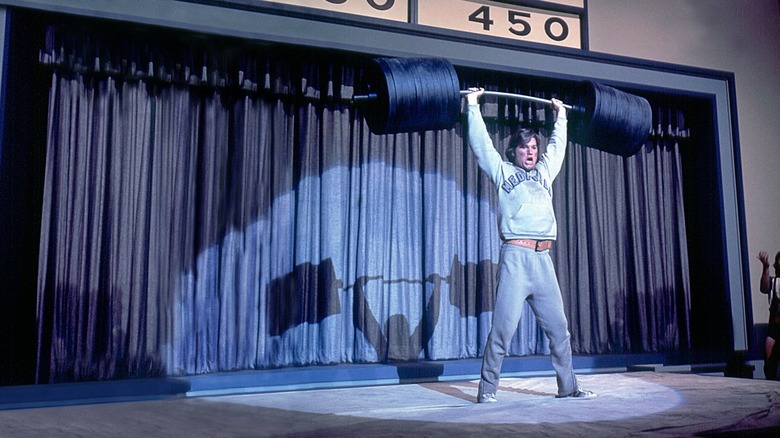When Kurt Russell was 12 years old, he faced a fork in his career path. His father, Bing Russell, owned a minor league baseball club, but made the bulk of his money as an actor; the elder Russell played Deputy Clem Foster in the successful TV Western “Bonanza.” Kurt, exposed equally to baseball and acting, began following both his father’s paths simultaneously, becoming equally interested in being a star little league player or an on-screen child star.
It was around the age of 12 that the young Kurt Russell attracted the attention of Walt Disney. He had already appeared in several hit TV shows like “Dennis the Menace,” “Lost in Space,” “The Virginian,” “Gilligan’s Island,” and “The Man from U.N.C.L.E.,” and Disney saw nothing but potential for the lad. Most notably, Russell had starred as the title character in “The Travels of Jaimie McPheeters,” a Western series based on a Pulitzer Prize-winning novel, and that, for Disney, was really putting Russell on the map. Russell liked acting, but still, at the time, considered himself a baseball player first and foremost.
By 1966, however, Disney had already courted Kurt Russell pretty heavily, and convinced the actor to sign a very lucrative 10-year contract with the studio. Russell would first star in “Follow Me, Boys!” for Disney in 1966, and go on to be one of the studio’s most lucrative stars of the 1970s.
According to an interview with the website The Escape from New York & L.A. Page, Russell was only able to become an actor for Disney after the mogul has eavesdropped on a conversation he had with his Little League coach. Russell, it seems, was concerned acting would cut into his baseball practice. Upon hearing this, Walt manipulated Kurt’s schedule to accommodate the young actor.
Kurt Russell and Walt Disney were friends, kind of
Russell, as he tells it, wasn’t just a lucrative teen star for Walt Disney, but kind of a freelance “youth” consultant. Disney saw Russell as his avenue to the young people of the 1970s, and clearly relied on him to give updates on what the kids were into. Russell has recalled playing ping-pong with Disney in his office, talking about movies and entertainment options of the day.
Before the professional relationship could begin, however, Russell had to be convinced to sign Disney’s 10-year contract first, and Russell remembers the meetings he had as a young teen … and how baseball seemed to be the more promising career for him. As Russell put it:
“Mr. Disney was a wonderful man. I was in the ‘Adventures of Jaimie McPheeters’ series. When I got the job, I was in Little League baseball and I was focused on wanting to become a professional ball player one day. We had a really good team. They were all really good. We went on to the championship. My father and I met with a man named Mr. Anderson, who talked and acted like the same character from ‘The Matrix.’ He said it would be impossible for me to play baseball and act because of the shooting conflict, so I decided that I’d rather play baseball than act.”
And that was that, it seems. What Russell learned later is that Disney was willing to rework all his films’ shooting schedules to accommodate Russell. To this day, no one knows why Walt Disney was so personally gung-ho about getting Russell into the Disney fold, other than to say his instincts were correct. At a time when Disney was struggling to find its identity as a studio, Russell was a proper movie star.
Kurt Russell was Walt Disney’s sounding board
Russell continued:
“Little did I know that Mr. Disney had listened to the whole conversation in the other room on speaker and quickly had a talk with Mr. Anderson. When my father and I were walking down the hall ready to leave, Mr. Anderson came running up to us and made me a deal where I could have game days off during filming. Mr. Disney and I would sometimes have lunch and he’d ask me what I thought about certain rides and attractions he had planned for the amusement park. He’d listen to this nine-year-old kid to see what worked and what didn’t using me as a sounding board.”
The 1970s were a touch-and-go time for Disney. The animation studio wasn’t as successful as it had been in previous decades, and attendance at Disneyland was falling off. This was the era when films like “The Aristocats,” “Robin Hood,” and “The Rescuers” were barely moving the needle, at least when compared to the studio’s glory days from the 1930s to the 1950s. Russell, it seems, was Disney’s salvation. A plain-spoken, baseball-loving, “average” young male who Disney hoped would save the company from ruin by leading them out of the 1960s and into the 1970s. In many ways, he did.
Curiously, the final note Walt Disney every wrote before his death in 1966 included the words “Kurt Russell.” No one knows what Walt was going to write under Russell’s name, other than he was thinking about the young star.





